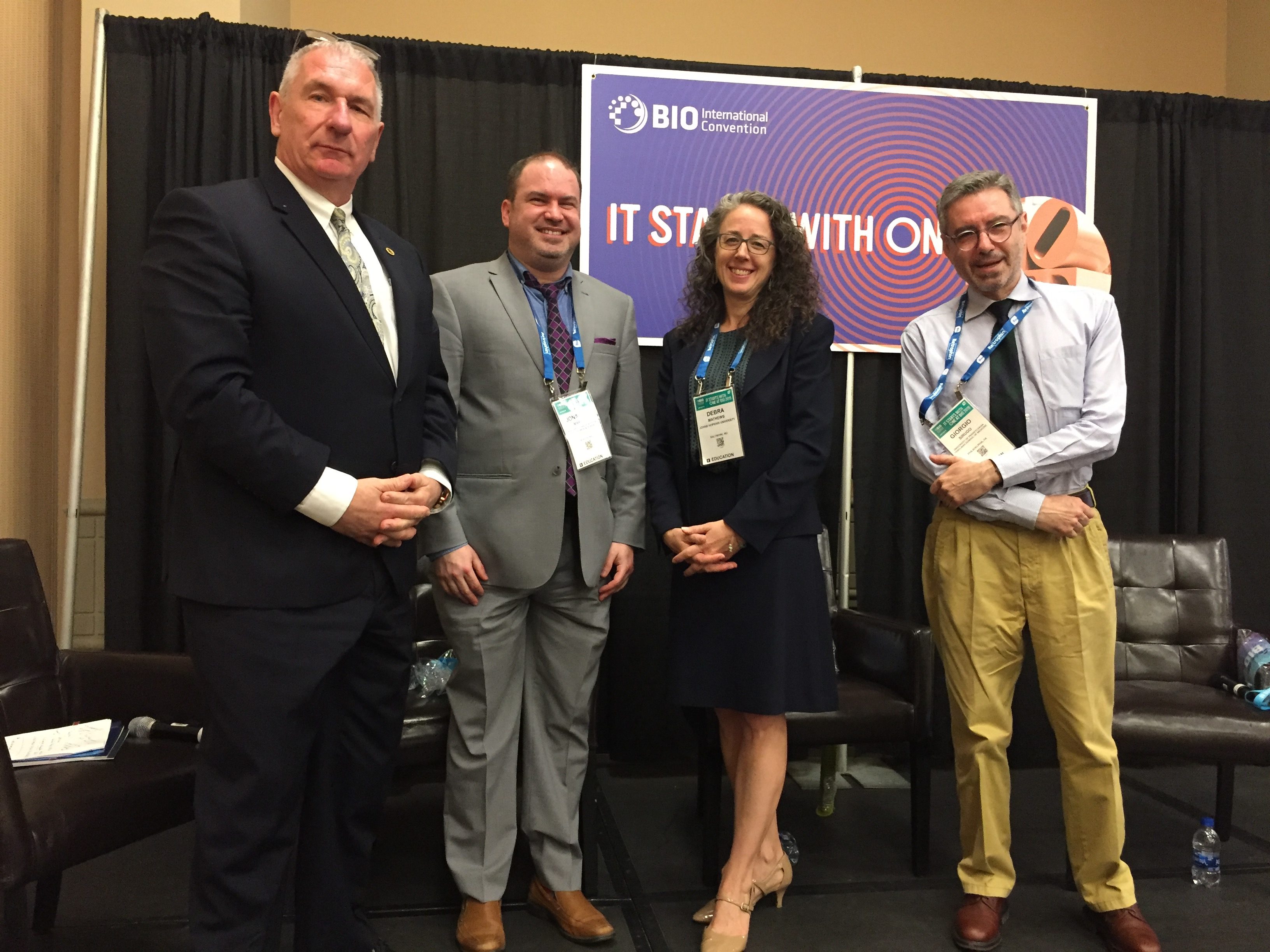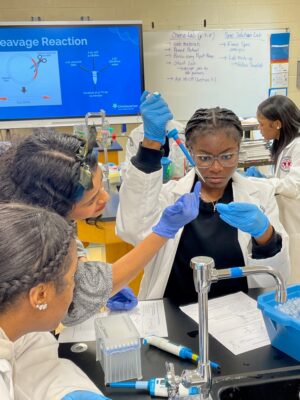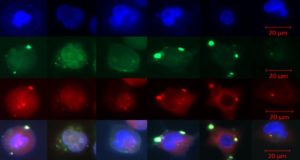While the extraordinary potential of CRISPR gene editing technology is now being realized, it is not yet reaching minority communities.
That was the take-away message of a panel discussion on how genome editing can impact unmet medical needs moderated by Eric Kmiec, Ph.D., director of Christiana Care’s Gene Editing Institute, at the 2019 BIO International Convention in Philadelphia, June 5. Innovation and industry leaders converged in Philadelphia and the Delaware Valley for the biggest annual event in bioscience.
“More than two decades after the National Institutes of Health set out to ensure the inclusion of minorities and women in federally funded clinical research, minorities still account for less than 10 percent of patients enrolled in clinical trials,” Dr. Kmiec said.
Read Dr. Kmiec’s interview with Front Line Genomics.
For example, take sickle cell disease. It affects one in every 2,500 African-Americans. Compare that with cystic fibrosis, which occurs in one of every 2,500 whites. Since 1996, there have been nine drugs approved by the U.S. Food and Drug Administration for the treatment of cystic fibrosis and only one for sickle cell disease.
“Over the past seven years, more than 80 percent of the participants in genome studies have been from people of European descent,” said Debra Mathews, Ph.D., associate professor, Johns Hopkins Berman Institute of Bioethics. “There’s a huge amount of genetic diversity that we simply don’t have access to, to develop treatments for certain diseases.”
More diversity, better science
“Unfortunately, some groups are being left out of the genomic revolution,” said Giorgio Sirugo, M.D., Ph.D., medical geneticist and adjunct associate professor, University of Pennsylvania School of Medicine.
“This impedes our ability to fully understand the genetic architecture of human disease and exacerbates health inequalities,” he said. “It also means our ability to translate genetic research into clinical practice or public health policy may be incomplete, or worse, mistaken.”

Panelists highlighted several causes of this disparity.
“Mistrust of the medical system is rampant, and these efforts take a huge amount of time and money,” said Jonathan Marron, M.D., MPH, pediatric oncologist, bioethicist, researcher, Dana-Farber/Boston Children’s Cancer and Blood Disorders Center, Harvard Medical School.
“With numerous infrastructure issues in developing countries, it makes it very difficult to reach diverse populations,” said Dr. Sirugo.
The solution, according to Dr. Mathews, lies in a medical community-wide focus on distributive justice — the process of ensuring that wealth, rights, medical care and more are shared fairly within a society.
Speaking to representatives from bioscience firms in attendance, she said: “Hire people who don’t look like you. We study things that are relevant to us. If everyone at your company looks like you, you’re all going be interested in the same things and you’re going to have huge blind spots. People don’t trust us, which means we need to demonstrate that we’re actually trustworthy by putting in the time and effort to learn how to recruit the populations who we want to have access to these technologies.”
“Build in distributive justice from day one on how to develop and disseminate new technology such as CRISPR to minority communities,” said Dr. Marron. “We need to take important steps to ensure that not only do these gene editing and genomic therapies not maintain inequities that we see, but certainly that we don’t worsen them. The mistrust is understandable, and we have to work hard to make up for that.”
Delaware — a driver on the “Innovation Corridor”
As part of Delaware’s effort to promote bioscience in the state in conjunction with the 2019 BIO International Convention, Janice E. Nevin, M.D., MPH, Christiana Care president and CEO, moderated a panel discussion on June 4 at Incyte headquarters in Wilmington.
Participants were Secretary of State Jeff Bullock, and top tech CEOs including Herve Hoppenot, Incyte; Vance Kershner, Labware; Andrew Cottone, Ph.D., Adesis; Kurt Foreman, Delaware Prosperity Partnership; and William Provine, Ph.D., Delaware Innovation Space.
“California may have the Silicon Valley, but Washington to New York is the new ‘Innovation Corridor,’” said Dr. Nevin. “We’re right in the middle of it.”
The panel discussion at Incyte was the first stop on a Delaware tour, which was hosted by DelawareBio and also included a stop at the University of Delaware’s STAR Campus in Newark. The tour allowed national and international guests participating in BIO 2019 to learn more about the benefits of starting or building a business in Delaware, particularly businesses focused on innovation and bioscience.
Adesis CEO Andrew Cottone highlighted the First State’s collaborative and nimble nature noting that “Delaware moves at the speed of entrepreneurship.” He and others underscored the tremendous talent pool in the region and strong support from state and local officials as other incentives to consider Delaware a home base for a business.
Dr. Nevin and Dr. Kmiec also hosted visitors and members of the media at a Gene Editing Institute exhibition in the Comcast Technology Center on June 4.



